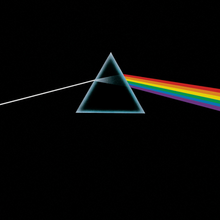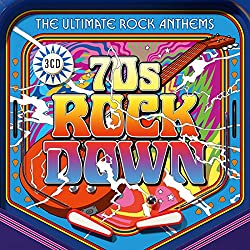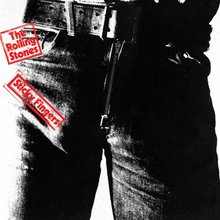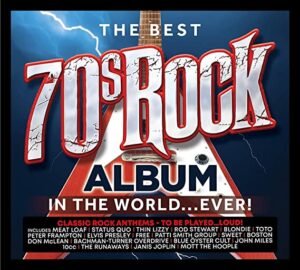If you’re looking to dive into the heart of 70s rock music, the UK isn’t a bad place to start. It’s a period renowned for its revolutionary bands, groundbreaking sounds, and electric live performances. This isn’t just about nostalgia; it’s a serious look at a musical movement that redefined a generation.
I’m going to frame the era for you, with a focus on 70s rock music – those three words that hold a wealth of history and style. You’ll find out about what made the UK’s scene stand out and how it continues to echo through the halls of rock music history.
In the 70s, the world saw a seismic shift in cultural and political spheres. The UK was no exception, and its music scene was a mirror reflecting the dynamic changes. Rock music, in particular, became a voice for youth, rebellion, and freedom. I’m here to help you understand that vibrant era through its music, which did much more than just entertain – it influenced fashion, language, and attitudes across the UK.
Throughout the decade, UK rock had a flavor unique to its shores. So before we move forward, remember, the 70s weren’t just about the rise of a genre; they marked a movement that pumped a new rhythm into the heart of British culture. And that rhythm had a name: rock music. But how did that sound shape a nation? Well, that’s going to include looking at the bands that made it big, the songs that became anthems, and the fans who made it all matter.
The Rise of UK Rock: Defining the ’70s Rock Music Sounds
I’m going to paint you a picture of the vibrant rock scene in the 70s United Kingdom. It wasn’t just a genre; it was the canvas where the sociocultural landscape of Britain was vividly illustrated. This era catapulted rock into the spotlight with an iconic sound that was raw, energetic, and utterly revolutionary.
Nodding to the legendary bands of the time, groups like Led Zeppelin, Pink Floyd, The Who. Queen, The Rolling Stones weren’t merely music makers; they were architects of a rock revolution. Each carried the torch of rock’s evolution, infusing blues, psychedelic, and progressive elements to create a sound so potent, it would shake the very foundations of UK music.
That’s going to include understanding the weight of albums like ‘Dark Side of the Moon’ and ‘Sticky Fingers,’ which were more than just collections of songs; they were cultural cornerstones that reflected the era’s spirit of the time. Their sound defined rock’s adaptability and the diversity of the 70s rock music scene.

The Dark Side Of The Moon became one of the best selling albums ever with over 700 weeks in the US billboard chart. It was released in March 1973 by Harvest Records in the UK and Capitol Records in the US. The album explores themes such as conflict, greed, time, death, and mental illness.
Track Listings:
Side 1
- Speak To Me
- Breathe (In The Air
- On The Run
- Time
- The Great Gig In The Sky
Side 2
- Money
- Us And Them
- Any Colour You Like
- Brain Damage
- Eclipse
Sticky Fingers by the Rolling Stones was released in April 1971 by Rolling Stones Records and reached number 1 in the UK in May 1971 . It was the first studio album without Brian Jones, who had died two years earlier.
The idea for the iconic album sleeve was conceived by Andy Warhol.
Track Listings:
Side 1
- Brown Sugar
- Sway
- Wild Horses
- Can’t You Hear Me Knocking
- You Gotta Move
Side 2
- Bitch
- I Got The Blues
- Sister Morphine
- Dead Flowers
- Moonlight Mile
Beyond the music, 70s rock music also wove itself into the fabric of social change. Youth rebellions reverberated with the sound of rock anthems, and the genre became synonymous with freedom and defiance. Concerts were not mere gatherings but rather places where people from all walks of life united under the banners of rhythm and riff.
In my opinion, this period also showcased some of the best collaborations and live performances ever seen on stage. Iconic festivals and concerts, like the Reading Festival, not only showcased UK talent but also became hubs for musical innovation and culture-sharing.
If you want to truly grasp the ’70s UK rock scene, envision an era where the music was a ticket to liberation—a soundtrack to the triumphs and turmoils of a passionate generation. It set a high bar for what was to come, both ideologically and musically, leading a legacy that young bands today still strive to reach.
By the way, if you enjoy looking up 70s artists, I’ve created a free A–Z guide you can download here.
Legendary Hits: Iconic 70’s Rock Music in the UK
Now, the ’70s weren’t just about the introduction of bold new styles in rock music, but also the birth of songs that have since turned into anthems. You’re going to find out about the tracks that dominated the charts and still electrify listeners today. Let’s explore the iconic hits that became the lifeblood of UK’s 70s rock scene.
Back then, music charts were a barometer of a song’s success. And well, they also influenced what people heard on the radio and bought in the stores. Every artist aimed for the top of the charts, and those who got there became legends. We’re talking about bands like Led Zeppelin, The Rolling Stones, and Pink Floyd – their music is etched into the rock hall of fame.
Think about Led Zeppelin’s ‘Stairway to Heaven,’ a track that despite never being released as a single, redefined rock music forever. The Rolling Stones gave us Brown Sugar and Tumbling Dice a song you can always count on hearing in retro playlists. And who can forget Pink Floyd’s Another Brick in the Wall? Which was the number 1 song at the end of the 70s. These songs still enjoy massive airplay and cover versions, signaling their unending appeal.
The Who with Baba O’Riley, Squeeze Box and Substitute added to the vibrant rock scene.
Queen with classics like Killer Queen, Bohemian Rhapsody, We Are The Champions and Don’t Stop Me Now.
I can’t leave out Status Quo who gave us Caroline, Down Down and Rockin’ All Over The World.
Slade also had some cracking songs like Mama Weer All Crazee Now, Cum On Feel The Noize, Skweeze Me Pleeze Me and Coz I Luv You. You would think these guys would learn to spell.
Free with All Right Now, My Brother Jake and Wishing Well. Mud with Dyna-mite, Tiger Feet.
Thin Lizzy had Whisky In The Jar, The Boys Are Back In Town and Waiting For An Alibi
E.L.O. where prominent in the UK charts with Roll Over Beethoven, Evil Woman, Livin’ Thing and Don’t Bring Me Down.
There were a couple of bands who only made a brief appearance in the charts but with great rock songs.
Bachman Turner Overdrive with You Ain’t Seen Nothing Yet, Golden Earring with Radar Love, Blinded By The Light by Manfred Mann’s Earth Band all had big hits.
During the 70s, media was undergoing its own revolution. Rock music benefited from televised music programs and the explosive growth of radio broadcasting, which brought the latest hits straight into living rooms and bedrooms across the UK. If there was a new smash-hit, you’d hear about it, one way or another.
And as we shift our focus to the legacy left behind by these remarkable anthems, we begin to see their threads woven into the fabric of modern music. It’s time to look ahead at how these songs from the past still echo in the halls of contemporary rock. That’s the strategy I like to leverage: understanding the past to appreciate the future of music.
The Legacy of 70s UK Rock and Its Influence on Modern Music
Now, I’m going to show you how the UK’s ’70s rock music scene isn’t just a chapter in history books; it’s a pulse that continues to reverberate through the heart of contemporary music. The raw energy, the innovative guitar riffs, and the lyrical depth of that era laid the groundwork for countless genres that followed. Bands today still look back at those years for inspiration, drawing upon the creativity and spirit of ’70 rock icons.
Music from the ’70s rock movement has transcended time and trends, proving that true artistry never fades. From the resurgence of vinyl records to the samples used in modern tracks, the classic beats of ’70s UK rock are unmistakable and in many ways, unmatchable.
It’s not uncommon to spot today’s youth donning band tees of The Who and Led Zeppelin, as they continue to discover and connect with the music of that influential decade.
The legacy of ’70s UK rock also lives on through various mediums, such as film soundtracks, tribute bands, and music festivals that celebrate the era. It has shaped the UK’s identity on the global stage, with British rock bands being some of the most recognized and celebrated across the world.
In closing, 70s rock music from the UK offered more than just entertainment; it provided a soundtrack that echoed the values, challenges, and aspirations of a generation. Today, it remains a testament to the enduring power of creativity and the timeless quality of a rebellious, soul-stirring rhythm.
Enjoyed this post?
If you love 70s music, I’ve put together a free A–Z guide covering artists and their songs from the decade. It’s a simple reference you can keep handy instead of searching online every time.
👉 Download your free copy here.
Music of the Decades
Celebrating the music of the 1970s.
You can also visit the Music of the Decades Etsy shop for vintage music from the 70s and 80s.
Frank




